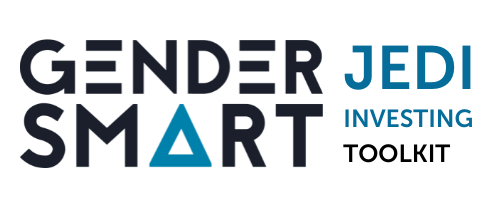The Investment Case for Board Diversity: A Review of the Academic and Practitioner Research on the Value of Gender and Racial/Ethnic Board Diversity for Investors
This paper from the Office of the Illinios State Treasurer seeks to examine the wealth of literature on the subject of whether and to what extent gender and racial/ethnic diversity affect the functioning of corporate boards and the performance of the companies they oversee, to provide further insight and render a judgment on the investment case for gender and racial/ethnic diversity on corporate boards. In summary, this paper concludes that the gender and racial/ethnic composition of corporate boards does indeed have a material and relevant impact on company performance and investors.
DEI Data Group: DEI Data Standard
In August 2020, the DEI Data Group commissioned a framework to monitor equity considerations in grantmaking, with a view to including the data in published grants information. This framework is not a judgement of organisations, it simply spells out the different categories that enable funders to collect data in a systematic manner to understand whether the reach of the funding and their funding practices are equitable. It will be used to inform funding strategies and specific funding strands/programmes, not individual funding decisions - except where it is explicitly a part of the fund criteria. The primary use will be for funders to monitor their grant programmes, but it is also anticipated that there will be wider use of a shared framework for sector analysis.
Social Equity Investing: Righting Institutional Wrongs
From Cambridge Associates: This paper reviews the current state of social equity in the United States, highlight eight core social equity issue areas, and discuss the lessons they've learned in constructing portfolios with these investments. They define social equity investing as investments to promote equal opportunity and access for all, regardless of background, but understand that many investors have different definitions. While investors need to be mindful of risks, the authors believe that investments can be made to promote a social equity impact agenda across the portfolio.
Harvard Law School Forum on Corporate Governance: Racial Diversity and Investment
Whilst gender diversity has been a growing priority for several years, investors have not approached racial diversity with similar enthusiasm and urgency. The topic of racial diversity in the investment industry was recently raised in an open letter in the UK from a group called Black Women in Asset Management, challenging the industry to move beyond statements on solidarity and anti-racism. The extensive Black Lives Matter protests, catalysed by the killing of George Floyd, have highlighted our interdependence in the midst of a global health crisis and the urgent need for action. It is time to ask what institutional investors can do to address the increasingly evident racial iniquities and their inconsistency with commitments to responsibility in business and investment.
Racial Equity Action Plans: A How-to Manual
Racial Equity Plans are both a process and a product. A successful process will build staff capacity which can be valuable during implementation. A process can also serve to familiarize more staff with the jurisdiction’s racial equity vision and its theory of change. This manual from GARE provides guidance for local governments to develop their own Racial Equity Action Plans after a period of research and information gathering. This manual also provides guidance and tools to conduct this research.
Racial Equity: Foundational Concepts
If you're early in your journey of exploring the links between racial equity and impact investing, a useful place to start is by understanding core concepts behind racial equity and how it differs from concepts such as diversity and inclusion. To help you get started, Mission Investors Exchange has compiled a brief list of frequently used terms, synthesized from the resources of leading educators.
Racial Equity Tools Glossary
Words and their multiple uses reflect the tremendous diversity that characterizes our society. Indeed, universally agreed upon language on issues relating to racism is nonexistent. Even the most frequently used words in any discussion on race can easily cause confusion, which leads to controversy and hostility. It is essential to achieve some degree of shared understanding, particularly when using the most common terms. In this way, the quality of dialogue and discourse on race can be enhanced.
Ethnic Origin and Disability Data Collection in Europe: Measuring Inequality – Combating Discrimination
From The Open Society Foundation: This report seeks to bridge the gap between theory and practice in relation to the collection of disability and ethnic origin data in the EU. The report notes that there is a widely held belief that the law prohibits any collection of sensitive data pertaining to disability and ethnic origin; however, equality data can be collected in compliance with the exemptions enumerated in Article 8 of Directive 95/46/EC.
Are you even trying to stop racism if you don’t collect data on race?
Most of the world’s wealthiest countries don’t collect any data on the racial or ethnic identity of their people. In many cases, it’s illegal. France doesn’t keep official statistics of how many Black residents it has, for example. Neither does Germany. Twenty of the 38 OECD countries collect no racial or ethnic identity data. These include some of the world’s wealthiest nations, like Japan, Germany, France, and Italy.
"France and Germany urged to rethink reluctance to gather ethnicity data"
Article from The Guardian reporting on how the racial discrimination debate had lead some leaders to push for updated surveys in France and Germany to help tackle injustices.
Statistics Canada Definition of "Population group of person"
From Statistics Canada: A definition of "Population group of person." "Population groups" are the groups used on questionnaires which collect data on the visible minority population for Employment Equity purposes. The Employment Equity Act defines visible minorities as "persons, other than Aboriginal peoples, who are non-Caucasian in race or non-white in colour".
Discussion Document for a Pan-Canadian Strategy to Advance Gender Equality
The Discussion Document for a Pan-Canadian Strategy to Advance Gender Equality of the Gender Equality Network of Canada is a culmination of the experiences, stories, expertise, and aspirations of over 150 leaders from across what is commonly known as Canada, nominated by local, federally funded, gender equality projects. The Discussion Document was developed out of three years of dialogue, learning, and knowledge sharing of the Gender Equality Network of Canada and is their collective response to a pandemic of gender-based violence, inequity, and the perpetually operationalized patriarchy which informs, directs, and administers our lives as women and people of marginalized genders.
Canadian Task Force on Women in the Economy
The COVID-19 pandemic has had an unequal impact on Canadians, particularly women, and the Government of Canada recognizes that a robust and inclusive recovery is necessarily a feminist recovery as well. The Government of Canada has created a Task Force on Women in the Economy to advance gender equity and address systemic barriers and inequities faced by women. The Task Force will harness the best ideas from a diverse group of experts to advise the government on a feminist, intersectional action plan that addresses issues of gender equality in the wake of the pandemic. Their expertise from the worlds of business, health, not-for-profit, child care, labour, academia, and advocacy will inform the government's plan to create jobs and growth. The Task Force will advise the Deputy Prime Minister and Minister of Finance and the Associate Minister of Finance on policies and measures to support women's employment.
Diversity and Inclusion in the Financial Sector: Working Together to Drive Change
This Discussion Paper (DP) is issued by the Prudential Regulation Authority (PRA) and the Financial Conduct Authority (FCA) as well as the Bank of England (the Bank) in its capacity of supervising financial market infrastructure firms (FMI). They have published this DP to engage financial firms and other stakeholders in a discussion on how they can accelerate the pace of meaningful change and what role they can most usefully play to support this change. The DP reiterates why diversity and inclusion is important for our objectives, explores how to build on existing requirements to support and monitor progress in the UK financial sector. The regulators are working together to clarify their regulatory approach to diversity and inclusion in pursuit of our statutory objectives and having due regard to our Public Sector Equality Duty. This discussion will support their engagement with stakeholders and policy development, helping to determine which interventions could have the greatest impact.
Responsible Venture Capital: Integrating Environmental and Social Approaches in Early-Stage Investing
As pragmatic investors in challenging markets, CDC and FMO tailor their approach to the nuances of each asset class. Equally, as development finance institutions, they have a deep commitment to responsible investment. Therefore, this report is intended to provide practical advice about how to invest responsibly in early-stage businesses in emerging markets; managing environmental, social and governance (ESG) risks and identifying opportunities, while supporting the growth of innovative companies.
A Blueprint for Revamping the Minority Business Development Agency
Across the United States, small businesses are a significant source of employment and provide a variety of goods and services. For those who are fortunate enough to own a small business, they can also offer a pathway to wealth building and prosperity. Unfortunately, the ownership, profitability, and even presence of small businesses are grounded in differences in capital finance and unevenly distributed by race—especially when comparing Black and white communities. This issue brief examines the disparity.
Investing in Equality: Integrating LGBT Issues into Total Portfolio Activation
This white paper from Trilium Asset Management provides a framework for investors to expand the scope of impact in LGBT issues across asset classes in their portfolios. The authors believe that all investments have impact, regardless of asset class, and that individual and institutional investors alike should consider how best to achieve their financial goals while leveraging their investments in a way that aligns with their mission and values. The goal of this report is that investors use the resources and case studies in this white paper as a guide for identifying investment opportunities that advance LGBT rights and equality.
Gender Equality and Social Inclusion Strategy 2018–2022: Fiji Women’s Fund
The Fiji Women’s Fund is an initiative of the Pacific Women Shaping Pacific Development (Pacific Women) Program, funded by the Australian Government. In November 2015, DFAT commissioned a three-member design team to develop the Fund design. The design team consulted with a range of stakeholders including key women’s civil society organisations and rural women’s groups, government, private sector and development grantees. The consultation highlighted the positive interest and support from women’s civil society organisations for the Fund to be locally owned and managed. However, there was strong consensus among women’s organisations that the process for localising the Fund required time and planning, and that this would be the key focus of the Fund while it is supported by DFAT until 2022. The Fund commits up to AU$10.5 million from July 2017 to June 2022 to women’s organisations, groups and networks. It will provide funding and capacity development support to women’s groups, organisations and networks in Fiji to expand and enhance their work on women’s empowerment and gender equality.
Verve Super's Gender Lens Investing Approach
Verve Super's Gender Lens Investing approach takes into consideration gender-based factors across the investment process to advance gender equality & inclusion and better inform investment decisions
Inclusive Africa
Inclusive Africa is a leading player for systemic change to improve inclusivity and drive diversity in Africa. They help development agencies, impact investors, and organizations working in Africa to track and improve inclusivity with a particular focus on intercultural and ethnic diversity to create opportunities for all.

